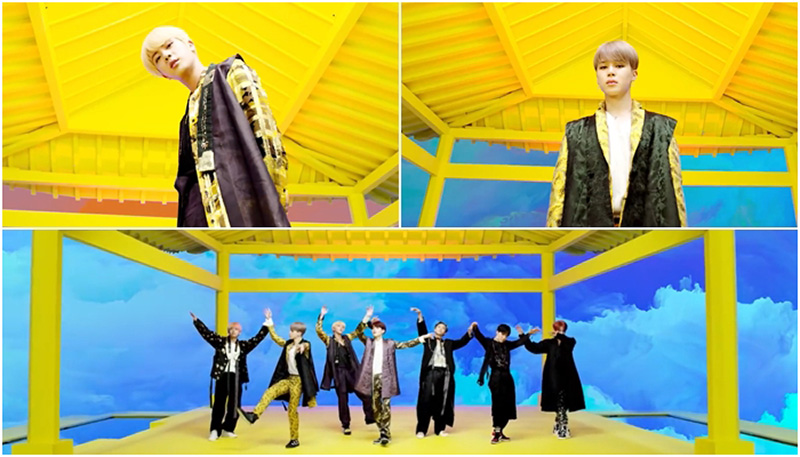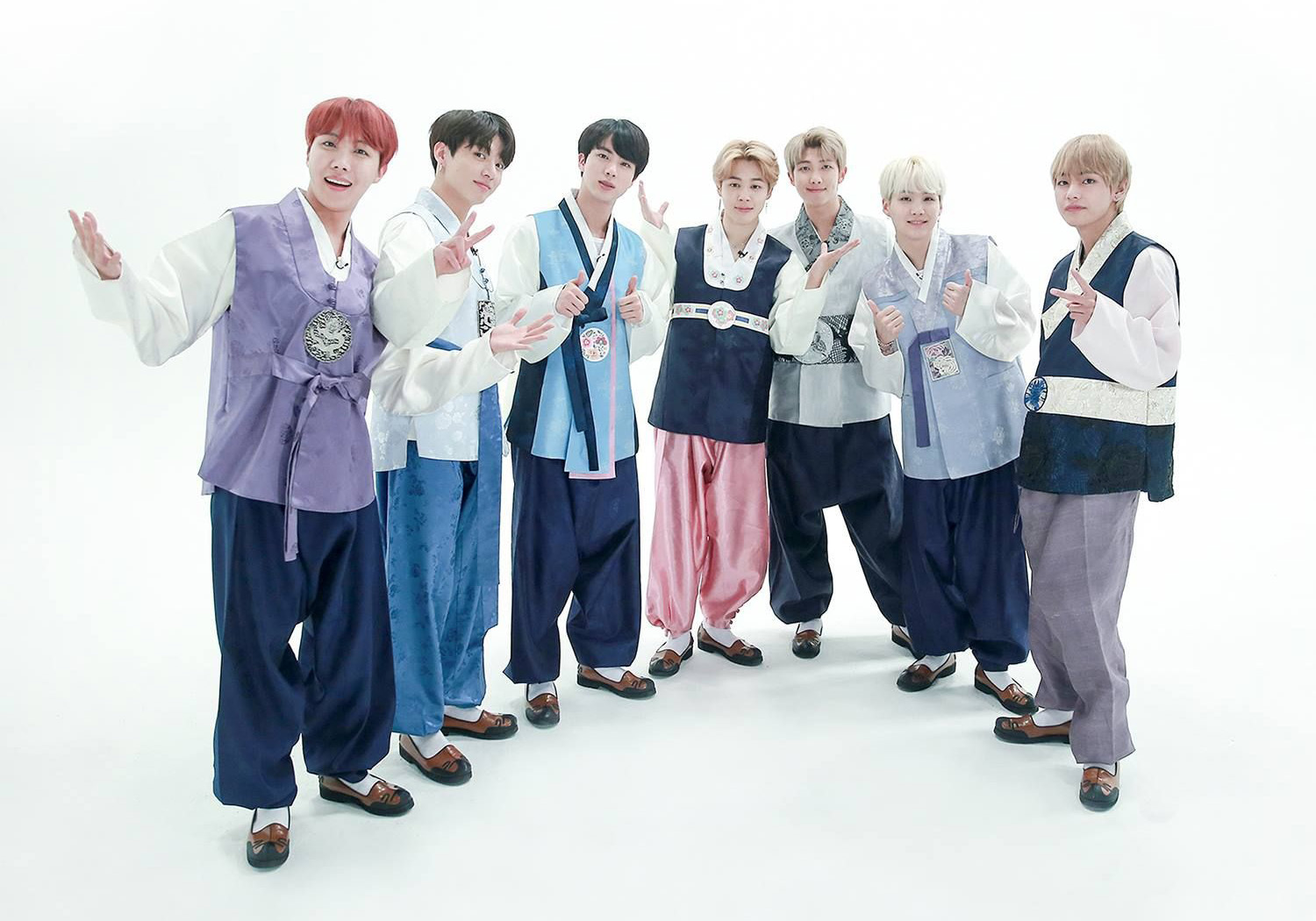
In their “Idol” music video, superstar K-pop band BTS sing their song donned in Korean traditional hanbok.
As it has garnered over 100 million views on YouTube in just five days after its release, their Korean attire also drew attention from global music fans.
The robe-like hanbok worn with sneakers brought positive reviews online.
“It’s cool, I wish to see them performing in hanbok at the Billboard Music Awards,” a YouTuber left a comment, while another said, “I like their modern and stylish designed hanbok. More so looking at them as the band that won over global audiences remembering their Korean roots.”
Book your Hanbok Photo shoot in Gyeongbokgung Palace
Apart from BTS and other celebrities who claim to be hanbok admirers, more young Koreans and foreign tourists appreciate hanbok for the beauty of the traditional attire.
A big turnaround has happened in recent years that hanbok, which had been mainly sought by a handful of older Koreans and considered haute couture for special occasions, emerged into something hip and trendy.
On any given day, Gyongbok Place in central Seoul and nearby streets are brimming with foreign tourists and young Koreans who take photos in Korean traditional attire.
“I’ve seen hanbok in dramas since I’m a huge K-drama fan. Thanks to those romantic comedy dramas that have been smashing big hits in my country, I’ve become curious about the traditional garments. Hanbok’s color is nice, very elegant and comfortable to wear,” said Genebeth, a 45-year-old mother from the Philippines who has been traveling with her husband and three daughters, all clad in beautiful hanbok. She says wearing it makes her feel like Korea is inches closer.
“My husband looks like a prince wearing shiny hanbok. It’s a new and nice cultural experience.
“I’m a big K-pop fan. Walking in the palace in fancy dress in the nice autumn weather makes me want to move to this country,” said Stephanie, their teenaged second daughter, waving and saying goodbye in Korean.
“It’s really beautiful and comfortable. I like its color and the embroidery on it,” said Landre, 31, another K-drama fan from France, wearing a black modified hanbok covered with shiny golden embroidered lace. “I already knew about hanbok. I chose to wear it on my visit to the Gyeongbok Palace because I wanted to be soaked in the Joseon era of old Korea.”
Since the government promoted the wearing of hanbok and the Cultural Heritage Administration started to give free admission to its wearers in palaces in Seoul in 2013, the number of such tourists in Korean traditional garments benefitting from free admission began to increase. In 2015, local governments joined in the free admission policy.
Coupled with the widespread fad among younger generations to take photos in palaces wearing hanbok, the number has increased explosively. The number that was only 13,000 in 2015 hovered 630,000 last year.
When in wearing that clothing, tourists could also get 10 percent discounts at some 100 restaurants in Jongno-gu, where three major palaces of Gyeongbok, Changdeok and Changgyeong Palace are located.
Tradition vs. modification
Hanbok that foreign tourists are wearing comes in every style, but they are different from the traditional hanbok that Koreans know of.
The so-called “modified hanbok,” which can be rented at prices between 10,000 to 30,000 won, often boast vivid colors and skip “otgoreum” or the long ribbons of the jacket, which is an important element of traditional hanbok. Many skirts have petticoats to make them look fuller, while others have ribbons on the back or glittering golden prints on them.
With this new trend, hanbok rental shops around the palaces have been prospering. As more join the market, rental shops in fierce competition with each other offer eye-catching vivid colors but made of inexpensive fabric. To save the cost, many of those hanbok items were made in China and Vietnam.
As the Jongno-gu Office takes steps to stop giving free admissions to those wearing excessively modified hanbok starting from next month, it provoked a heated debate among people on what looks like traditional hanbok and what does not.
The younger generations say the “new” hanbok is pretty and photogenic, while others say that is not proper hanbok at all, hampering its identity.
In a recent survey conducted by PanelNow of people aged over 14, it turned out that those who responded positively to the modified hanbok outnumbered those who answered negatively. 10,730 people said yes, while 3,484 disapprove of the modified hanbok.
Netizens opposing the modified hanbok said, “It feels bad to see it reduced into clothing for costume play. The palaces seem inappropriate places to offer them to those people,” while the accepting voiced that it is another need of the time. “As hanbok varied in style over long periods of time in the past, modified hanbok is just a different form of hanbok as well.”
In the recent public discussion on the Jongno-gu office’s move, its governor Kim Young-jong said, “We had this free admission policy in place to preserve our tradition and spread the wearing of hanbok, we have many concerns since our well-intended move seems to be hampering the tradition.”
Lee Hae-soon, a hanbok designer present at the discussion said, “If cheap hanbok shakes its identity, it is not modifying but destroying it.”
However, many others worry that its new policy could pour cold water on the spreading popularity of hanbok. Kim Gyui-sik, who runs a hanbok rental shop in Jongno-gu, said, “We should take it as part of playing culture. Applying a tight rule on it could be unnecessary.”
Another rental shop owner added, “Customers rent hanbok according to their tastes. Price is not a major element that affects their decision. I can say that customers prefer modified hanbok over the traditional.”
Source: The Korea Times
